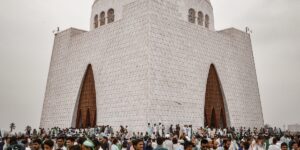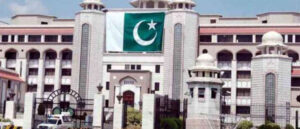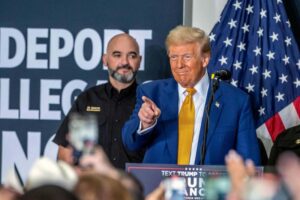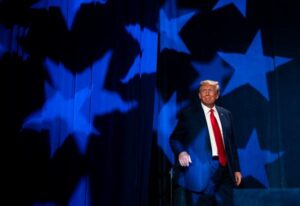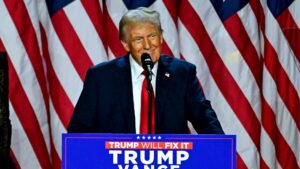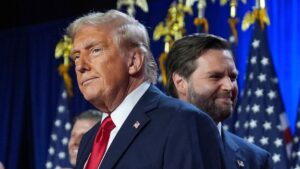Protest by PTI Canceled Amid SCO Conference: A Complex Scenario Unfolds

In a dramatic turn of events, Pakistan Tehreek-e-Insaf (PTI) has called off its planned protest, which was initially set to coincide with the Shanghai Cooperation Organization (SCO) conference. PTI had initially linked the cancellation of their protest to a meeting between their founder and the authorities. However, when the government rejected this demand, the protest was ostensibly called off for other reasons. This decision reflects the tense political atmosphere and strategic maneuvering on both sides, as each seeks to control the narrative in the lead-up to a major international event.
PTI’s Request for a Meeting with Its Founder
PTI’s original demand for a meeting with their detained founder was met with resistance. Barrister Goher, representing PTI, submitted a request to the Ministry of Interior seeking permission for a meeting between the party founder and senior PTI leadership. Initially, there were reports suggesting that the government might be open to this request. However, it later clarified that such a meeting would not be arranged, citing the rules governing prisoner rights and privileges.
According to the authorities, altering regulations to allow a meeting specifically for PTI’s founder would violate principles of fair treatment. While the government noted that visits for all prisoners are currently restricted, PTI argued that their protest at the SCO conference was a direct response to this denial.
Security Concerns Cited as Justification for Protest
Upon the government’s refusal to permit a meeting with the founder, PTI shifted its reasoning for the protest, suggesting that their leader’s health was at risk. In light of this concern, PTI requested access to a private doctor for a medical examination. This prompted the party to arrange for a personal physician from Shaukat Khanum Hospital to be stationed outside the detention facility.
PTI emphasized that ensuring the founder’s well-being was a priority, and they claimed that only a personal physician could provide the necessary assurance. This narrative evolved to portray PTI as reluctantly forced into protest due to the government’s alleged negligence toward their leader’s health. PTI declared that if their leader was allowed access to a personal doctor and found to be in good health, they would consider calling off their protest. However, the government declined this request as well, leading PTI to heighten their rhetoric surrounding the situation.
Internal Debate within PTI and Public Reactions
As PTI prepared for their protest, reports surfaced of internal divisions within the party. Some senior leaders, known for their pragmatism, expressed concerns that staging a protest during the SCO conference could be politically damaging. They argued that the party’s actions might be perceived as unpatriotic and disrupt the high-profile event. In contrast, PTI’s social media team and some other factions defended the protest, claiming it was a critical opportunity to highlight the government’s shortcomings.
Critics within PTI believed that the government should exercise restraint and avoid responding to PTI’s perceived provocations. They suggested that yielding to PTI’s demands, despite potential negative consequences, would set a dangerous precedent. However, others argued that, given PTI’s decision to proceed with the protest, the government should at least attempt to accommodate some of PTI’s concerns.
Government’s Firm Stance on Refusing Concessions
The government, however, took a hardline approach, showing no inclination to yield to PTI’s demands. After rejecting the request for a personal doctor, the government offered a compromise by proposing a medical examination by a government-appointed physician. They argued that all prisoners receive standard medical care through state-provided services and that PTI’s founder would be treated no differently.
This impasse fueled speculation that PTI might proceed with its protest despite the potential consequences. The government’s refusal to meet PTI’s demands reflected a broader concern about setting a precedent where influential groups could coerce authorities into making exceptions under the guise of health or security concerns. Allowing PTI’s requests, they argued, could open the door for future groups to impose similar conditions during significant national events.
PTI Canceled the Protest Under Specific Conditions
After some negotiation, PTI agreed to call off the protest under the condition that their leader’s health would be examined by a government doctor. While PTI had initially demanded access to a private physician, they eventually accepted the government’s compromise. This decision hints at PTI’s understanding of the potential backlash of protesting during the SCO conference and its desire to avoid escalation.
It is also worth noting that this sequence of events has fueled various rumors regarding internal conflicts within PTI. There have been reports suggesting that some members lacked enthusiasm for the protest due to logistical and financial constraints. Punjab, a traditional PTI stronghold, reportedly struggled to mobilize resources for the event, raising questions about the party’s readiness and unity.
SCO Conference and the Government’s Strategic Concerns
The SCO conference represents a significant diplomatic moment for Pakistan, as it seeks to showcase its role as a stable and cooperative regional player. The government has been vigilant about ensuring that the event proceeds smoothly, without disruptions or incidents that could tarnish the country’s reputation. For the government, capitulating to PTI’s demands was seen as potentially undermining the state’s authority, signaling that groups could exert influence during international events.
Officials expressed concern that acquiescing to PTI’s demands might set a dangerous precedent, where any faction could hold the government hostage on the eve of crucial events. They noted that this would diminish the government’s ability to enforce security measures independently and uphold Pakistan’s international image. With the eyes of the world on Pakistan, the stakes are high, and any concessions to PTI could have lasting implications on how the government handles similar situations in the future.
Potential Implications of a Post-SCO Protest by PTI
While PTI has deferred their protest, it remains uncertain whether the party will resume their demonstrations after the SCO conference. If PTI chooses to renew its protest, the government will likely respond with stringent measures, including arrests and legal actions. The political landscape has shifted, and PTI would face an uphill battle if they attempt to re-ignite the protest post-conference. The government, bolstered by the success of the SCO event, would be in a stronger position to counter any further demonstrations by the opposition.
Furthermore, PTI would need to assess whether a post-conference protest would carry the same weight as one held during the SCO summit. The heightened attention and symbolism tied to the international conference provided a unique platform for PTI, which they no longer have access to. Any subsequent protests would likely be met with more conventional government responses, reducing PTI’s leverage and making it harder for the party to maintain public interest.
Conclusion: A Political Stand-off with Lasting Repercussions
The recent events surrounding PTI’s planned protest and the government’s response underscore the ongoing tensions between the two sides. For PTI, the decision to call off the protest represents a pragmatic acknowledgment of the situation’s complexity. They were able to negotiate a partial concession regarding medical access for their leader, yet they ultimately avoided a confrontation during a sensitive international event.
The government, on the other hand, demonstrated a firm stance, signaling its intent to uphold security and stability during high-profile events without yielding to external pressure. This development could serve as a precedent for how the government manages similar situations in the future, reinforcing the state’s authority and underscoring the responsibilities of political parties to maintain peace during crucial moments for the nation.
Both PTI and the government will need to carefully navigate the next steps in this delicate situation. With political stakes high and public scrutiny intense, each side will need to consider the broader implications of their actions as they seek to assert their positions on Pakistan’s evolving political stage.

